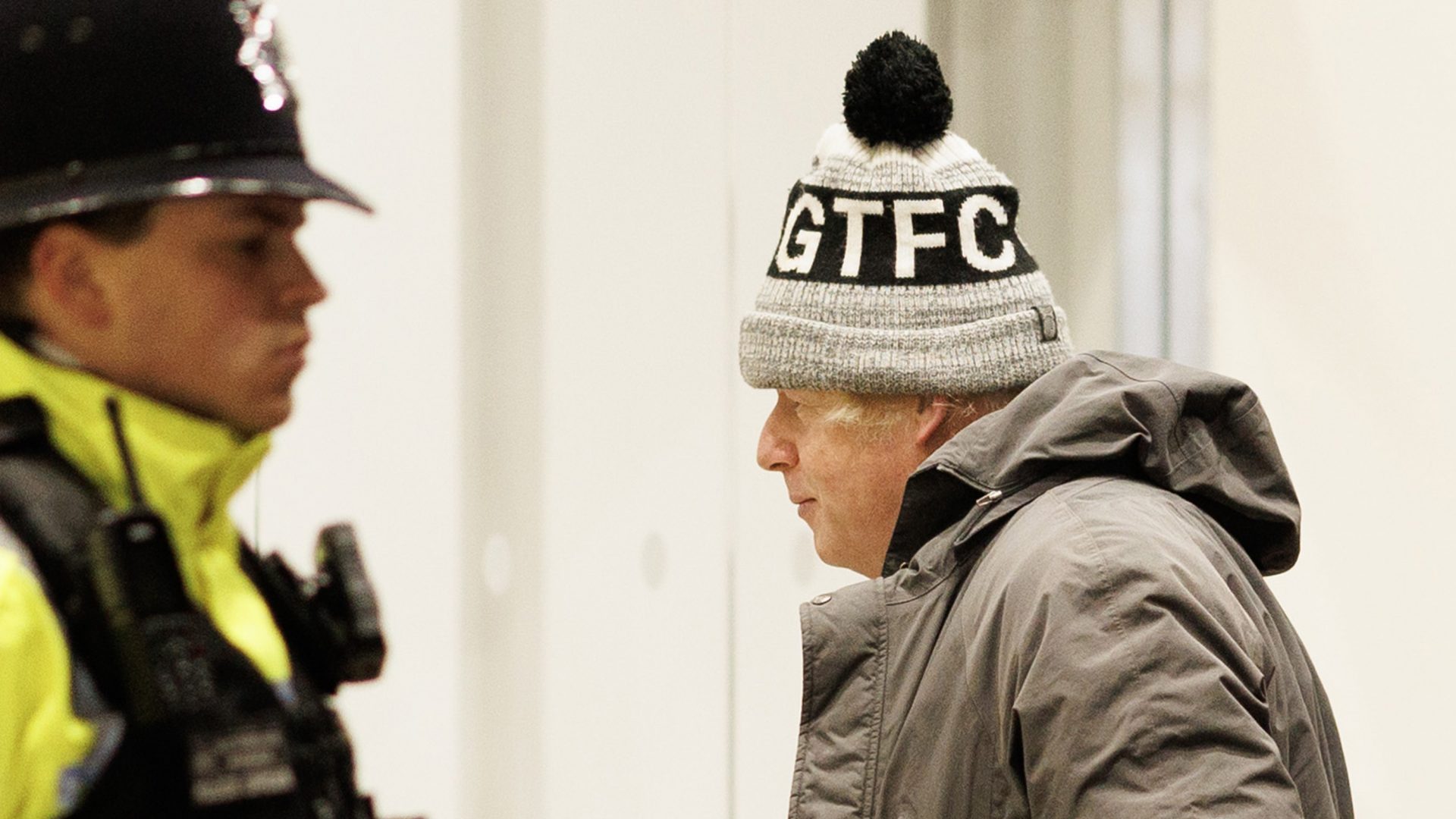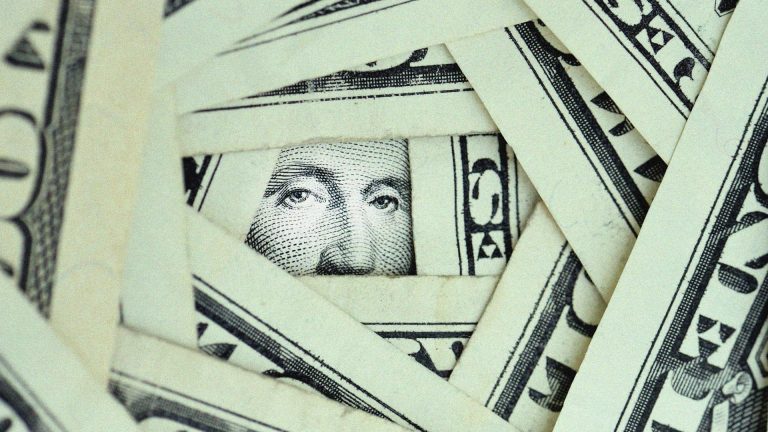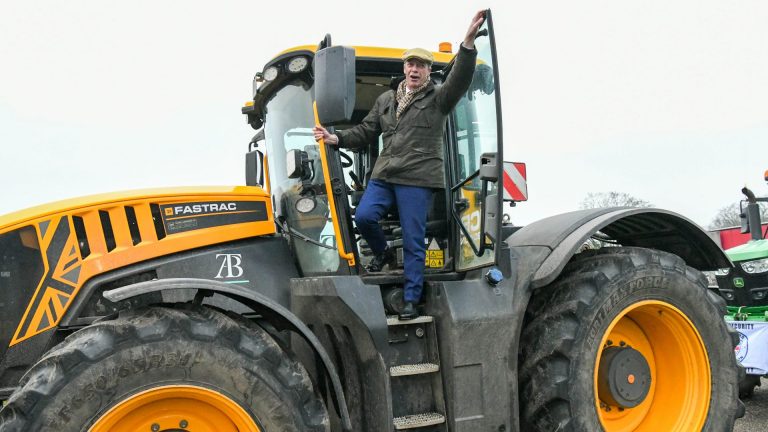There is a famous (and brilliant) nonsense song written by the Italian signer Adriano Celentano in the 1970s. Every word of it is meaningless (whether in English or Italian) but the tune is so good, and the rhythm of the words so spot on, that unless you’re paying a great deal of attention even a native English speaker would assume it’s a rock song of the era.
That is the best description I am able to give for the experience of watching a full day of Boris Johnson giving evidence to the Covid inquiry. Most of what he said had the form of an answer to a question from the inquiry’s barrister – until you actually paid attention.
It wasn’t just that Johnson’s answers didn’t tally with written evidence of the time, suggesting that deliberately or otherwise they were untruthful, because that’s simply par for the course with our last prime minister but one (at the time of writing). It was that his answers often made absolutely no sense even under their internal logic.
Anyone relying on Johnson’s answers alone, rather than the context and follow-up questioning would be left having listened to hours of testimony only to realise that nothing they had heard had made any sense.
At one stage Johnson promised that he had considered the differential impacts of gender and ethnic diversity on the weeks of March 16 and 23 – when the government was scrabbling, too late, to sort the first lockdown – based on facts the government is on record as not knowing until April. Even after several rounds of patient follow-up questioning asking him to explain the obvious error, Johnson was only able to waffle.
Things got stranger. Johnson did not know about the “toxic” atmosphere of Number 10, described by almost every other participant who has given oral evidence to the inquiry. Instead, he insisted it was a normal and healthy office culture for people to constantly call for their colleagues to be sacked, for staff to send him abusive messages about civil servants, and for senior officials to resign in the middle of a global crisis.
Instead, Johnson explained this was simply how to foster a culture of healthy disagreement, in which people could dissent with a plan in a respectful environment, instead of feeling the pressure to conform. Any sane human being might conclude that such an environment would do the exact opposite of fostering healthy challenge, but Johnson sagely assured the inquiry they would be wrong.
Johnson had similar answers for everything: nonsense statements he seemed confident settled a matter, while doing nothing of the sort. Numerous messages showing Johnson’s opinion constantly changed in fact showed that he was testing the course of action upon which he had decided. Want it to be true enough, he clearly thought, and you can convince a judge-led inquiry that it’s so.
Messages suggesting he didn’t believe in long Covid, or on several occasions suggesting letting Covid rip only showed how sincerely Johnson cared about the people of the country. Who are you going to believe, contemporaneous notes or an unconvincing and barely coherent statement months later?
The Covid inquiry is not a criminal investigation. It is instead a bid to find answers about how decision-making worked during Covid, and to draw lessons to improve it for the future. But to watch Johnson was to be reminded that in criminal trials the defendant is almost always advised not to testify.
Sam Bankman-Fried, the former crypto billionaire now facing decades in US prison, defied that advice during his trial – confident in his abilities after having fooled media interviewer after media interviewer.
The process of giving evidence shattered his illusions rapidly. It might have been a last roll of the dice in a case he was going to lose anyway, but it just made everything worse. Johnson’s evidence was much the same – the documentation was all against him, as was what we know from years of reporting.
But hearing him try to respond to the evidence shows the limit of his abilities. Boris Johnson spoke for six hours on Wednesday, and all he produced was noise.
There is a famous (and brilliant) nonsense song written by the Italian signer Adriano Celentano in the 1970s. Every word of it is meaningless (whether in English or Italian) but the tune is so good, and the rhythm of the words so spot on, that unless you’re paying a great deal of attention even a native English speaker would assume it’s a rock song of the era.
That is the best description I am able to give for the experience of watching a full day of Boris Johnson giving evidence to the Covid inquiry. Most of what he said had the form of an answer to a question from the inquiry’s barrister – until you actually paid attention.
It wasn’t just that Johnson’s answers didn’t tally with written evidence of the time, suggesting that deliberately or otherwise they were untruthful, because that’s simply par for the course with our last prime minister but one (at the time of writing). It was that his answers often made absolutely no sense even under their internal logic.
Anyone relying on Johnson’s answers alone, rather than the context and follow-up questioning would be left having listened to hours of testimony only to realise that nothing they had heard had made any sense.
At one stage Johnson promised that he had considered the differential impacts of gender and ethnic diversity on the weeks of March 16 and 23 – when the government was scrabbling, too late, to sort the first lockdown – based on facts the government is on record as not knowing until April. Even after several rounds of patient follow-up questioning asking him to explain the obvious error, Johnson was only able to waffle.
Things got stranger. Johnson did not know about the “toxic” atmosphere of Number 10, described by almost every other participant who has given oral evidence to the inquiry. Instead, he insisted it was a normal and healthy office culture for people to constantly call for their colleagues to be sacked, for staff to send him abusive messages about civil servants, and for senior officials to resign in the middle of a global crisis.
Instead, Johnson explained this was simply how to foster a culture of healthy disagreement, in which people could dissent with a plan in a respectful environment, instead of feeling the pressure to conform. Any sane human being might conclude that such an environment would do the exact opposite of fostering healthy challenge, but Johnson sagely assured the inquiry they would be wrong.
Johnson had similar answers for everything: nonsense statements he seemed confident settled a matter, while doing nothing of the sort. Numerous messages showing Johnson’s opinion constantly changed in fact showed that he was testing the course of action upon which he had decided. Want it to be true enough, he clearly thought, and you can convince a judge-led inquiry that it’s so.
Messages suggesting he didn’t believe in long Covid, or on several occasions suggesting letting Covid rip only showed how sincerely Johnson cared about the people of the country. Who are you going to believe, contemporaneous notes or an unconvincing and barely coherent statement months later?
The Covid inquiry is not a criminal investigation. It is instead a bid to find answers about how decision-making worked during Covid, and to draw lessons to improve it for the future. But to watch Johnson was to be reminded that in criminal trials the defendant is almost always advised not to testify.
Sam Bankman-Fried, the former crypto billionaire now facing decades in US prison, defied that advice during his trial – confident in his abilities after having fooled media interviewer after media interviewer.
The process of giving evidence shattered his illusions rapidly. It might have been a last roll of the dice in a case he was going to lose anyway, but it just made everything worse. Johnson’s evidence was much the same – the documentation was all against him, as was what we know from years of reporting.
But hearing him try to respond to the evidence shows the limit of his abilities. Boris Johnson spoke for six hours on Wednesday, and all he produced was noise.










